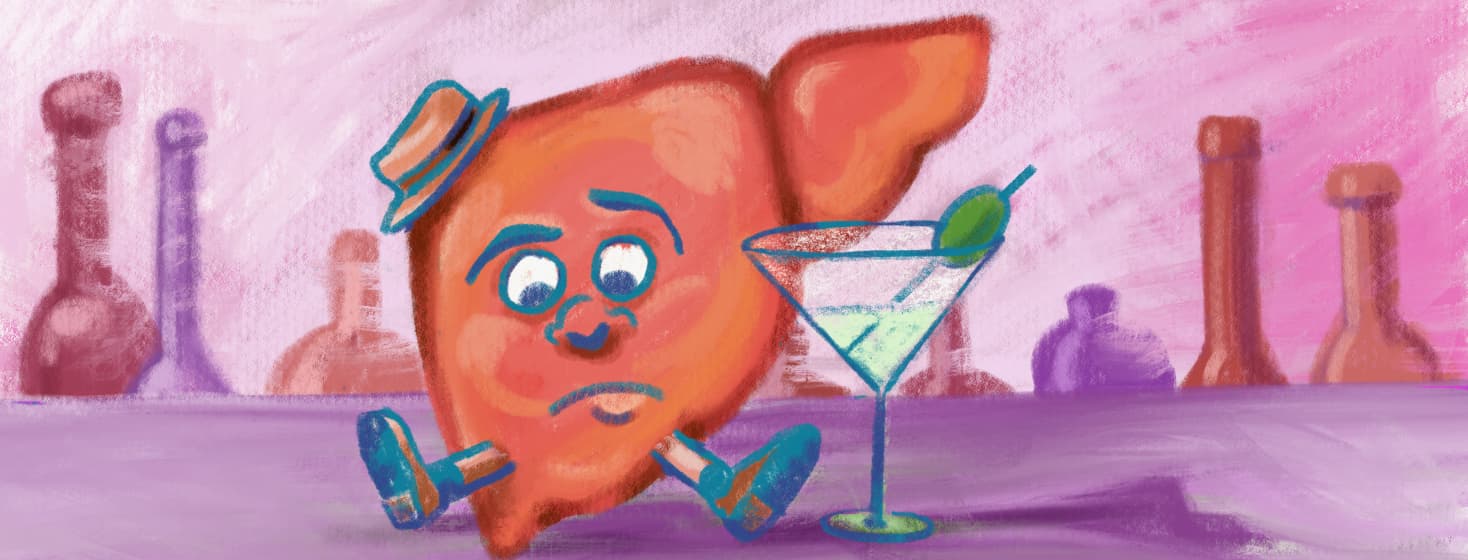Alcohol and Hepatitis C
Reviewed by: HU Medical Review Board | Last reviewed: February 2022 | Last updated: June 2024
Alcohol has many effects on the body. Too much alcohol over time can lead to issues with specific organs. These organs include the liver and the pancreas. Alcohol can also increase the risk for certain cancers, like liver cancer or head and neck cancers1.
Since alcohol has a strong relationship with liver health, people with the hepatitis C virus (HCV) may have additional concerns about alcohol’s effects.
Defining alcohol use
Alcohol comes in many forms and strengths. This makes it hard to compare across drinks. As a result, doctors use standard amounts to define 1 alcoholic drink. These standards help doctors count drinks per week to determine a person’s drinking level. This allows the doctor to understand exactly how much a person is drinking and how it might affect that person’s health. In the United States, 1 standard drink is1:
12 ounces of beer
5 ounces of wine
1.5 ounces of 80 proof liquor
About 7 drinks per week for women and 14 drinks per week for men is the cutoff between moderate and heavy drinking. People who are considered heavy drinkers have a higher risk of developing alcohol problems or health issues later on. Women tend to have a lower cutoff than men because they tend to be smaller, among other reasons1.
Alcohol use disorder and hepatitis C
People with alcohol use disorder (AUD) are more likely to have HCV than the general population. Studies have found that as many as 36 percent of people with a history of AUD may also have HCV. It is hard to determine the exact number of people affected by both. Research so far points to a connection, but experts are not sure what this connection is2,3.
The link between HCV and AUD may be related to increased high-risk behaviors, like injecting drugs. But this is not the only explanation. There are other ways to get HCV that do not have as clear of a link to alcohol use. More research is needed to understand the true relationship between HCV and alcohol use2,3.
Impact of alcohol on HCV progression
We do know that alcohol affects how HCV advances in the body. Those who are considered to have heavy alcohol use and HCV are at a higher risk of liver cancer and death than those who do not drink heavily. In addition, those who drink heavily have a faster progression of liver damage (fibrosis). This leads to an increased risk of permanent scarring, called cirrhosis2-4.
Cirrhosis can lead to many other health issues, including liver failure and an increased risk of bleeding. In addition to alcohol use, factors that increase the rate of fibrosis include being a man and being over 40 years old at the time of HCV infection2,3.
Alcohol and HCV treatment
In the past, alcohol consumption was a factor when planning someone’s HCV treatment. Older interferon-based treatments did not work as well when a person was using alcohol at the same time. But our understanding is less clear with newer direct-acting antiviral drugs (DAAs). DAAs were tested in people with no or minimal alcohol use. This means that we do not know how alcohol impacts the effects of DAAs. But we do know that alcohol may keep DAAs from working as well as they can3.
How much alcohol can a person with HCV drink?
The exact amount of alcohol that will impact HCV progression is not known. Some have suggested the limit is about 3 drinks per day, while others think it might be less. This is because even small amounts of alcohol can lead to stress on the body. Because it can be hard to determine this cutoff, some doctors recommend no alcohol at all. This recommendation is especially true for those about to start HCV treatment. But it can vary between doctors and based on your situation3.
If you have questions about alcohol use and your HCV or its treatment, talk with your doctor.

Join the conversation